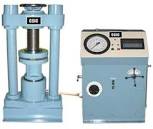Factors Affecting the Compressive Strength of Concrete
In this blog, I discussed major Factors Affecting the Compressive Strength of Concrete in detail.
Compressive strength is a vital parameter that determines concrete structures’ durability and load-bearing capacity.
Various factors can influence the compressive strength of concrete as follows:-
1. Size of Specimen
The size of the specimen used for testing can impact the compressive strength of concrete. In general, as the size of the specimen decreases, the strength tends to increase. This is due to the reduction of internal flaws and defects in smaller specimens.
2. Stress Situation
The stress state of the concrete, whether it is under a uniaxial or triaxial state, can influence its compressive strength. Concrete under a triaxial stress state offers more resistance compared to a uniaxial stress state.
3. Moisture in Specimen
The moisture content in the concrete specimen can affect its strength. Higher moisture levels can reduce the strength of concrete. The strength of a dry sample is typically around 1.1 to 1.2 times that of a saturated sample.
4. Air Voids
Air voids in concrete, which can be formed by evaporation of water during the curing process or by entrapped air, significantly decrease the compressive strength. It is crucial to minimize air voids during the concrete mixing and placement process.
5. Rate of Loading
The rate at which the load is applied to the concrete specimen during testing can impact its compressive strength. Generally, an increase in the rate of loading leads to higher strength values.
6. Age of Cement
The age of the cement used in concrete plays a role in its compressive strength. As cement absorbs moisture from the atmosphere over time, its strength tends to reduce. Fresh cement typically exhibits higher strength compared to aged cement.
7. Cement-Aggregate Ratio
The ratio of cement to aggregate in the concrete mixture affects its compressive strength. Increasing the amount of cement in the mix generally leads to higher ultimate strength values.
8. Type of Aggregate
The type of aggregate used in concrete construction can impact its compressive strength. Rounded or cubical aggregates tend to provide higher compressive strength but may result in poor bonding compared to irregular or angular aggregates.
9. Size of Aggregate
The size of the aggregate used in the concrete mixture can influence its compressive strength. Generally, larger aggregate sizes reduce the strength of concrete.
10. Degree of Compaction
The degree of compaction during the concrete placement process is crucial for achieving optimal strength. Higher levels of compaction, with minimal air voids (around 5%), result in increased strength. In contrast, a higher percentage of air voids (around 10%) can significantly reduce the compressive strength.
Compressive strength of concrete can be calculated by Compression testing machine.


